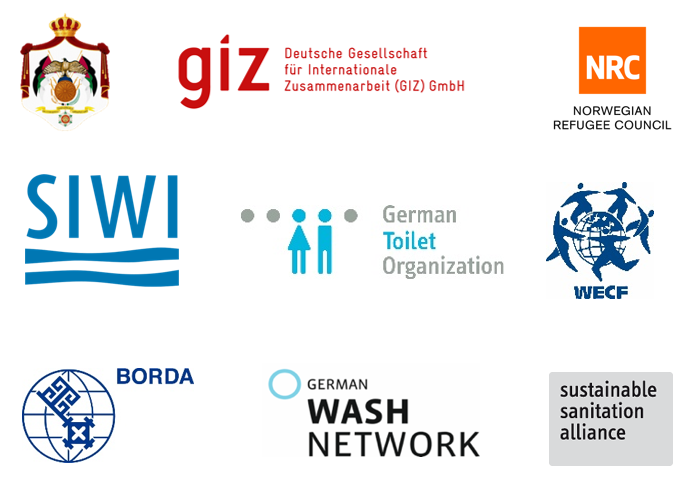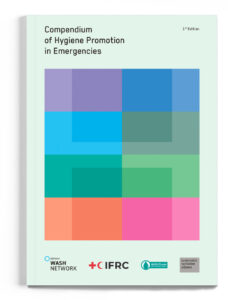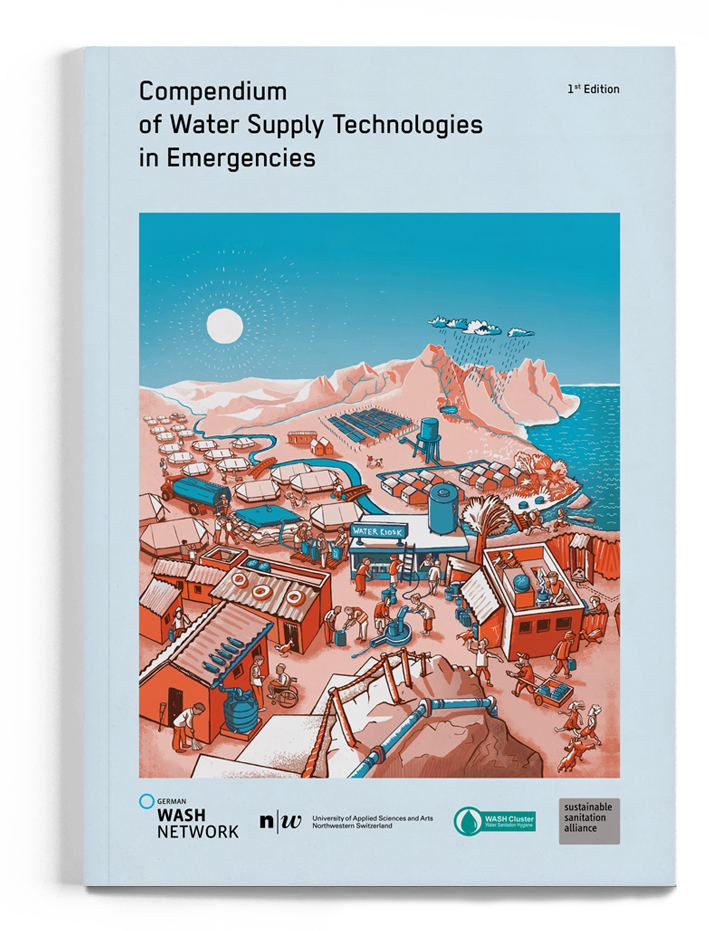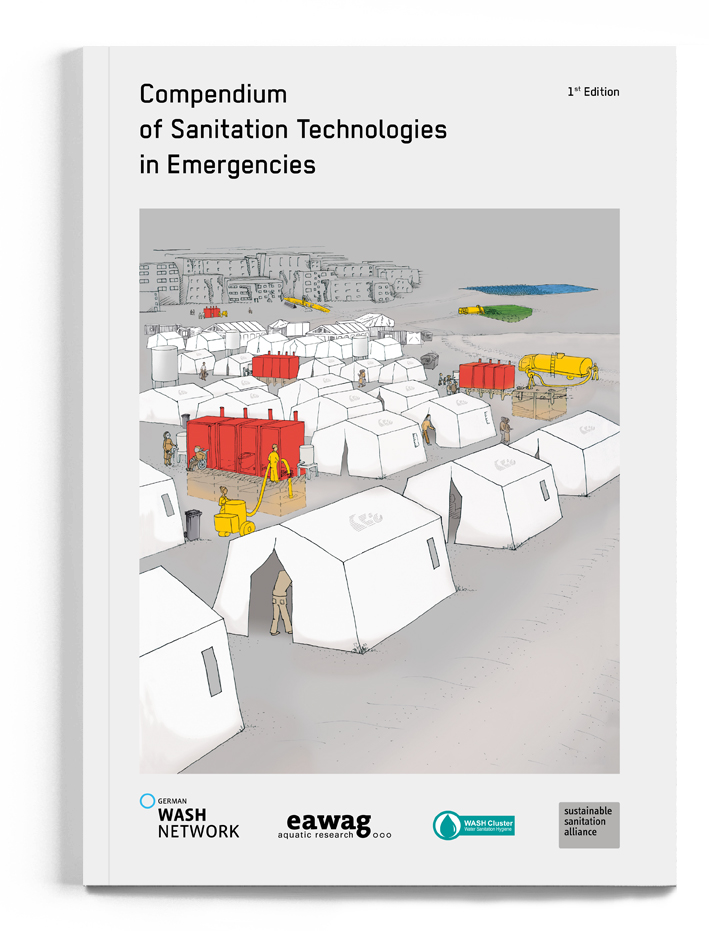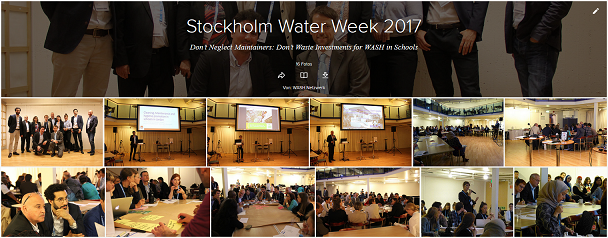Stockholm World Water Week 2017
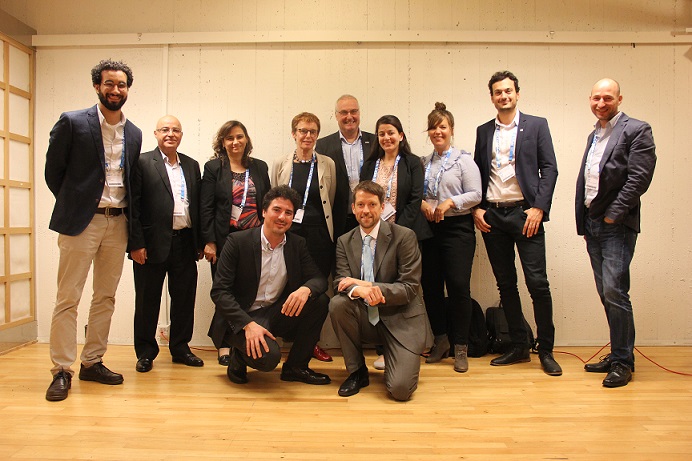
Showcase: ”Don’t Neglect Maintainers: Don’t Waste Investments for WASH in Schools”
In light of universal, interdisciplinary and holistic SDGs, impact of “WASH in Schools” (WinS) must be considered for progress of SDG2 (health), SDG4 (education) and SDG6 (water, sanitation). This is clearly exemplified by SDG target 4a, which includes WinS indicators and demands increased collaboration between WASH and education sectors.
Regardless of development or industrialized context, sustainable use, maintenance and upkeep of WinS remains the greatest challenge. While investments do focus on infrastructure and/or awareness, issues related to sustainability and maintenance too often do not result in concrete, implementable concepts. This is perpetuated by a school setting’s many stakeholders – including students, parents, caretakers, teachers and policy makers – and can only be overcome by combining smart technical design with awareness raising and clear institutional structures. The education sector has a key role to play here and much-neglected caretakers must be center of attention.
Participants discussed innovative approaches, including the “Hausmeister Concept” (Jordan), “WASH-a-lot” handwashing facilities and “Three Star Approach” (Philippines) and “Toilets Making the Grade” (Germany), seeking to develop clear recommendations. This is essential for avoiding a waste of limited resources at all levels – from pupils to ministries – and to ensure safe and clean learning environments.
Showcase: ”Don’t Neglect Maintainers: Don’t Waste Investments for WASH in Schools”
| Introduction | Welcome | Introduction Convener & Co-Conveners Objective of the Session Connect WG07/10 |
Moderation: Mr. Thilo Panzerbieter, German Toilet Organization |
| Country Case Jordan | Seeking to Overcome the WinS Maintenance Challenge Posed by the SDGs | SDG Relevance Project Introduction Key Challenges |
Speaker: Mr. Ismael Nouns, GIZ WASH+ |
| Coordinating School WASH Maintenance at Three Administrative Levels | Definition of Terms Continuous Maintenance & Project Cycle Keys, Roles & Responsibilities Three Level Approach |
Speaker: Ms. Samar Shaker Qaqish, Managing Director of Buildings and International Projects, MoED, Jordan Mr. Kamal Saleh Al Hasani, Head of Maintenance Directorate, MoED, Jordan |
|
| Q&A | Moderation: Mr. Thilo Panzerbieter, GTO |
||
| Tools & Experiences | Introducing NRC’s “Cleaning, Maintenance and Hygiene Manual” | Awareness Creation | Speaker: Mr. Ammar Fawzi, NRC Jordan |
| Required Budgets for O&M per Child | Costing Tool | Speaker: Ms. Dr. Bella Monse, GIZ |
|
| Technical Designs | What cannot be maintained should not be built! | Speaker: Mr. Stefan Reuter, BORDA |
|
| Q&A | Moderation: Mr. Thilo Panzerbieter, GTO |
||
| Tables of Key Challenges | Table 1: Government / Organizational Structures |
How to institutionalize (preventive) maintenance? | Facilitator: Ms. Dr. Bella Monse, GIZ Ms. Samar Shaker Qaqish, MoED |
| Table 2: Awareness and Behavior Change |
How do we create positive behavior (ideas/experiences)? | Facilitator: Mr. Ammar Fawzi, NRC Jordan Mr. Kamal Saleh Al Hasani, MoED |
|
| Table 3: Technical Design |
Which technical designs keep soap in schools and ensure long-term functionality of school WASH facilities? | Facilitator: Mr. Stefan Reuter, BORDA Mr. Andreas Ludwig, GTO |
|
| Reporting back from Tables | Moderation: Mr. Thilo Panzerbieter, GTO |
||
| Summary | Take Aways from the Session | Participant lists & Collect Contacts Documentation will be sent to all participants Advertise: SuSanA WG Meeting |
Speaker: Mr. Ismael Nouns, GIZ WASH+ |
Results
Tools & Experiences:
The Stockholm WWW WinS Session is an important tool to connect countries, organizations and actors with the same challenges and problems, and to discuss and share experiences, approaches and “best practice”.
Through, during and after the WinS session many valuable dialogues and links have been created. Exchange of experiences, “lessons learned” and “best practice” between organizations and stakeholders has already begun and can be integrated into other project processes. The topics “Maintenance and Rehabilitation vs. Rebuilding”, “Behavioral Change” and “Awareness Creation” as well as the “Costing Tools” and “Technical Designs” were discussed with great interest.
The WinS session was the only event during the conference on maintenance at schools in conjunction with WASH and experienced lively participation and high interest. The results were very helpful for the GIZ WASH+ project in Jordan and the participants and speaker of the Ministry of Education (MoED), Jordan. Discussions were fed into the add-on meeting of the SuSanA WG 7 and WG 10 at the SWWW.
Identified Key Challenges for WinS:
- Vandalism
- Missing soap in school toilets
- No working concept for maintenance
Main content of presentations:
- NRC: Cleaning, Maintenance and hygiene promotion in schools in Jordan: Awareness building
- holistic and integrated approaches in schools
- Jordan faces overcrowded schools because of double-shift system to integrate Syrian pupils
- WinS and O&M is being institutionalized in Jordan through Ministry of Education with support of the WASH+ Project by GIZ
- »Manual for Maintenance, Cleaning and Hygiene Promotion in Schools« (by NRC) to achieve behavioral change in schools with regards to WASH, doing this in a sustainable and scalable way
- GIZ: Operation and Maintenance for WinS (“WASH in Schools”) – Costing Tool to define the need and calculate the cost for O&M
- cleaning and simple maintenance requires material and labor, but is essential to sustain functionality
- Cost for O&M depends on type of facility and setting with huge variety even within countries
- Costs, e.g.: users and cleaners kits, maintenance materials, dislodging services, labor for cleaning and for simple maintenance
- Costs calculation (details: see at ppt):
- Assumptions: infrastructure is functional, 1 toilet / 50 students; access to water; major, unpredictable repairs are not part of this planning tool
- Government funds for O&M are allocated per school based on number of children and vary between countries
- BORDA: Technical Designs – What cannot be maintained should not be built!
- Example for vandalism proofed designs from South Africa
- Design features were:
- Modular, pre-fabricated, long-lasting & appealing WinS facility
- Design criteria should consider durability, sustainability, gender & environmental (DEWATS)
- All supply and discharge lines are laid in a maintenance shaft in the back
- Focus on maintenance and rehabilitation instead of on rebuilding
Results from the working tables
Table 1: Government / Organizational Structures – How to institutionalize (preventive) maintenance?
- Target group not only students, but also cleaning personal, teachers, principals and parents
- Financial community support, soap as well-keeping in schools
- Mentoring: older kids teach the other ones, particularly in avoiding vandalism; Games on cleaning & maintenance
- Integration into the curriculum (learning from other countries, institutions, programs)
- Involvement of care takers, encouragement & empowering of children (involve them, responsibility), sanitation clubs
- Getting the right balance in hygiene clubs, committees
Table 2: Awareness and Behavior Change – How do we create positive hygiene behavior change (ideas & experiences)?
- Many Challenges bear chances in themselves, if they are faced
- Challenges: different ministries are involved and the responsibilities are not clear; no dedicated budget for O&M – not for WASH; limited capacities for WIN O&M challenges; enforcement in school levels; unclear role of parent association; role of municipalities
- Chances: clear allocation of one part of the school budget for WASH; private sector participation in O&M
Table 3: Technical Design – Which designs keep soap in schools and ensure long-term functionality of school WASH facilities?
- Devices: Soap powder, liquid soap dispenser, attach soap directly in a bottle of water; soap in cloth / case – no direct contact with soap; become a soap producer to save costs
- Design: building a relationship to the infrastructure: toilet constructed next to school building, children can be involved into the designing of their toilet (e.g. color), depends on context
Add-on meeting: SuSanA Working Group 7 & 10 (WinS & O&M)
- „What cannot be maintained should not be built“ (avoid toilet ruins, invest in rehabilitation)
- the participation of 2 representatives of the Jordanian ministries of education (MoED) stimulated the discussion. It was discussed how SuSanA can contribute the best communication of knowledge and capacity building.
Presentations
GIZ Jordan – WASH+ Project in Jordan
MoED Jordan – Maintenance at Schools
GIZ – Introducing a Costing Tool
NRC – Cleaning, Maintenance and Hygiene Promotion
Discussion Tables – Key Challenges
The link to the showcase event at the official Stockholm World Water Week website you will find here
Conveners
Bremen Overseas Research and Development Association (BORDA)
Ministry of Education – Hashemite Kingdom of Jordan (MoED/JOR)
Deutsche Gesellschaft für Internationale Zusammenarbeit (GIZ)
German Toilet Organization (GTO)
Norwegian Refugee Council (NRC)
Sustainable Sanitation Alliance (SuSanA)
Women in Europe for a Common Future (WECF)
Speakers
Ismael Nouns, GIZ WASH+
Samar Shaker Qaqish, MoED, Jordan
Kamal Saleh Al Hasani, MoED, Jordan
Ammar Fawzi, NRC Jordan
Bella Monse, GIZ
Stefan Reuter, BORDA
Moderation
Thilo Panzerbieter, GTO
